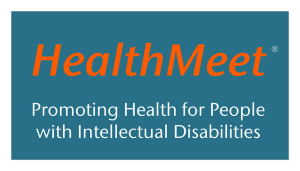Are You a Caregiver? We Want to Hear From You!
Each November, we celebrate National Family Caregivers Month, and we all know a caregiver who we respect and admire. Caregivers truly deserve year-round recognition, because they do what they do out of love and a desire to help someone live the fullest life they can despite the challenges they might face. Being a caregiver for a person with intellectual and developmental disabilities (IDD) can be as difficult as it is fulfilling at times. Dedicating your time to help another person with everything from their personal care and financial planning, to advocating for them and ensuring their life is enjoyable is no small task. The shared relationship, emotions, experiences, and memories between you and the person you care for can cause physical, emotional, and psychological strain on both the caregiver and the person with IDD receiving care. According to The Arc’s FINDS survey, 88% of caregivers feel physical fatigue, and 81% feel emotional stress or experience upset or guilt as a result of their caregiving activities.
As part of The Arc’s HealthMeet health assessment and education initiative, we seek to find out more about how caregivers of all ages and types – parents, siblings, paid staff, and others – view the health status of the person with IDD they take care of as well as their own health. Because of the additional reported physical and emotional stress on both the caregiver and the person receiving care, we also look to find out more about what plans are in place to support the person with IDD you take care of if something were to happen to you.
To help us find out more about these issues, please complete this survey or send it to a caregiver you know. This survey not only helps The Arc find out more about health issues experienced by people with IDD and their caregivers but can also be used to help caregivers think about “red flag” health concerns that they may have about the person they provide care for.
The information provided in this survey is confidential and will never be used to identify someone specifically. Individuals filling out the survey will have the opportunity to provide contact information if they choose to do so. This information will only be used to send information about The Arc and its health promotion programs.
If you have any questions about this survey, please contact Jennifer Sladen at sladen@thearc.org.
This survey is a modified version of the HealthMatters Caregiver Assessment Survey created by the University of Illinois at Chicago, Department of Disability and Human Development. HealthMeet® is a project of The Arc funded by a $938,745 cooperative agreement with the Centers for Disease Control and Prevention, National Center on Birth Defects and Developmental Disabilities Grant #5U59DD000993-02.


 Programs, such as The Arc’s
Programs, such as The Arc’s 





